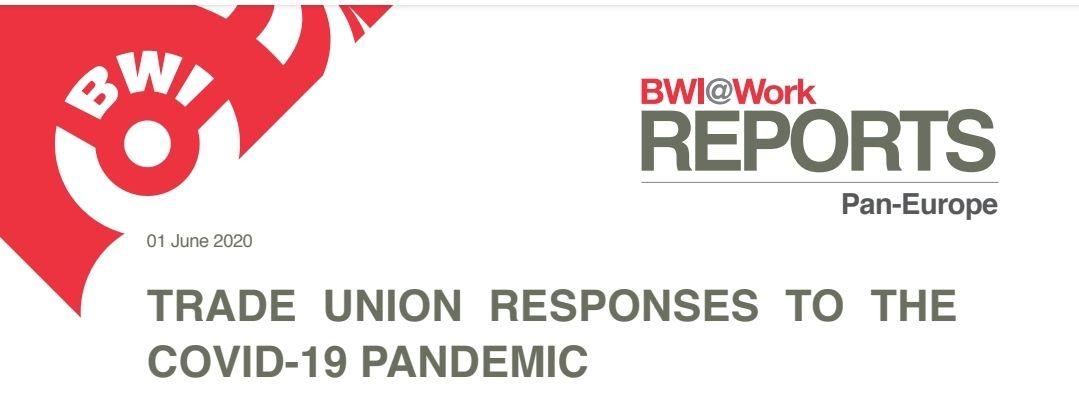BWI releases full Pan-Europe report on COVID-19, calls for new economic model
 BWI released its Full COVID-19 Report covering the Pan-Europe region. The report gave a comprehensive situationer of the region, the challenges faced by trade unions and workers in general, different initiatives mounted by affiliates to respond and adapt to new realities, and strategic proposals, such as imagining a new economic model to fit the new normal world of work.
BWI released its Full COVID-19 Report covering the Pan-Europe region. The report gave a comprehensive situationer of the region, the challenges faced by trade unions and workers in general, different initiatives mounted by affiliates to respond and adapt to new realities, and strategic proposals, such as imagining a new economic model to fit the new normal world of work.
The report said that while most of the countries implemented different levels of lockdowns to contain the spread of COVID-19, most workers in the industries where BWI is working on, failed to benefit from the option of working from home and social distancing measures. It said that the said measures proved difficult to implement.
BWI’s report also highlighted the condition of migrant workers, one of the hardest-hit sectors by the pandemic. Migrant workers represented a high proportion of the workforce, often living in substandard accommodation and on precarious contracts, as bogus self-employed or working for ‘letter-box’ companies.
BWI affiliates in the region responded with a wide array of initiatives to protect workers from the crisis. In particular, they called for employment and wage protection to shield workers from forced unpaid leaves and terminations. They also asserted their roles in crisis management to employers and governments.
The trade unions also lobbied for health and safety policies to ensure strict compliance to social distancing measures, regular disinfection of worksites, complete personal protection equipment (PPE) and shifting work schedules. Access to health insurance and sickness benefits were also pushed. In Finland, a sickness benefit for those affected by the COVID-19 (or prescribed by a doctor to go into self-isolation) is paid both to employees and self- employed accounting for the full loss of income and with no waiting period, to a sick employee or self-employed. In Israel, employers were required to provide health insurance coverage for Palestinian construction workers from 4 May as they are now required to spend extended periods of time in Israel as a result of the COVID-19 restrictions.
Tactically, unions have called for new measures in relation to government stimulus packages so that they are conditional on job protection. Tax-paid government support given to large companies should also be conditional on verifiable improvement in their sustainable development performance in ways that have positive impacts for workers, the environment and the real economy.
Strategically, trade unions asserted that no less than a new economic model is necessary in a new normal world of work. They said that this new economic framework must be more resilient, protective, inclusive and geared towards transitioning to a “European Green Deal” and a climate-neutral economy.
